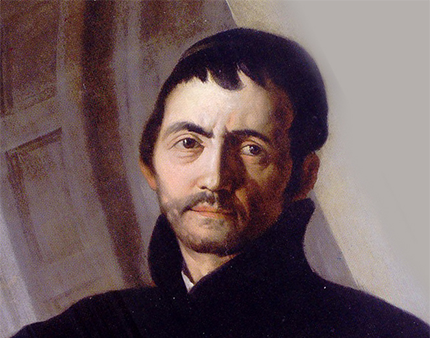Introduction:
In the rich tapestry of classical music, certain composers stand out as true pioneers and visionaries. Domenico Zipoli, an Italian Baroque composer, is one such luminary whose life and works continue to captivate audiences to this day. Despite his relatively short life, Zipoli left an indelible mark on the world of music, producing compositions that seamlessly blended European and South American influences. Join us as we delve into the fascinating biography of Domenico Zipoli and discover the enduring legacy of this extraordinary composer.
Early Life and Education:
Domenico Zipoli was born in Prato, a small town near Florence, Italy, in 1688. From an early age, he displayed exceptional musical talent, which led him to pursue a formal education in music. At the age of nineteen, Zipoli entered the Jesuit College in Florence, where he received a comprehensive education in music theory, composition, and keyboard performance.
Journey to South America:
In 1716, Zipoli embarked on a life-changing journey to the New World, joining a group of Jesuit missionaries bound for South America. His destination was the Reductions of Paraguay, a network of Jesuit missions where he would spend the rest of his life. The journey itself was arduous and took several years, but it provided Zipoli with an opportunity to immerse himself in the vibrant musical traditions of the region.
Musical Synthesis:
Upon arriving in South America, Zipoli quickly became fascinated by the indigenous music and traditions he encountered. He tirelessly studied and adapted these musical styles, seamlessly integrating them with his European Baroque training. This unique synthesis resulted in a distinctive musical language that resonated with both local communities and European audiences.
Compositions and Legacy:
Despite the relative isolation of the Paraguayan missions, Zipoli’s compositions garnered widespread acclaim. His works, which include sacred choral music, orchestral suites, and keyboard compositions, exemplify a harmonious blend of European and South American elements. Zipoli’s music exhibits a profound emotional depth, often evoking a sense of spiritual contemplation and introspection.
Zipoli’s most renowned work is the “Misa Brevis,” a Mass composed for choir, soloists, and orchestra. This composition, characterized by its expressive melodies and captivating harmonies, has stood the test of time and remains a treasured piece in the Baroque repertoire. Other notable compositions include the “Elevazione,” a keyboard piece of profound beauty and serenity, and various motets and hymns.
Unfortunately, Zipoli’s life was cut short in 1726 when he succumbed to tuberculosis at the age of 37. However, his music continued to be performed and celebrated in the Jesuit missions for many years after his passing. Over time, Zipoli’s compositions gradually gained recognition beyond South America, finding their way into concert halls worldwide and earning him a place among the most esteemed Baroque composers.
Conclusion:
Domenico Zipoli’s life and musical legacy offer a captivating glimpse into the transcendent power of music. His ability to bridge cultural divides and create a harmonious synthesis of different traditions is a testament to his talent and vision. Despite his untimely death, Zipoli’s compositions continue to inspire and resonate with audiences around the world. As we celebrate the life of this remarkable composer, let us revel in the enduring beauty and profound emotional depth of his musical creations.


Comments are closed